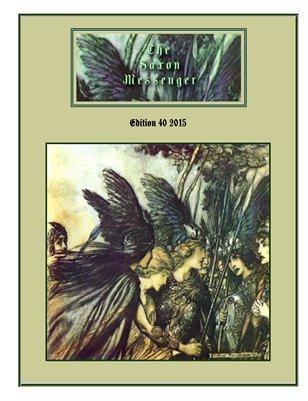The Epistles of Paul - Galatians Part 2: The Works of the Law
The Epistles of Paul - Galatians Part 2: The Works of the Law
In Galatians chapter 1 Paul had begun to establish his credentials and his authority as a preacher of the Gospel of Christ. Here he shall continue to do this, and he did it because, as we shall see here in this chapter, he is addressing the Judaizers who had obviously infiltrated among the Galatians in order to bind them to the circumcision and other rituals of the Old Testament law. Ostensibly, these Judaizers had credentials of their own, and therefore Paul, writing in opposition to them, was compelled to present the evidence of his own legitimacy.
At Galatians 1:18 Paul spoke of his time in Jerusalem as described at Acts 9:26, where he had said “Then after three years I went up to Jerusalem to relate an account to Kephas, and remained with him fifteen days”. Here Paul is talking about his visit to Jerusalem in Acts Chapter 15, then he continues in Galatians chapter 2 and says:
1 Then after fourteen years I had again gone up to Jerusalem with Barnabas, taking Titos along also; 2 and I had gone up after a revelation, and laid upon them the good message which I proclaim among the Nations, but privately to those of repute, lest in any way I strive, or have strived, in vain.

 Here we shall present Paul's epistle to the Galatians, and before doing so we must establish the identity of the Galatians whom Paul was writing to. The name Galatia at the time of Paul's ministry referred to either one of two things. First, the word referred to the kingdom of the Galatae which was established in Anatolia in the 3rd century BC, or secondly it may have referred to the Roman province of Galatia, which incorporated the ancient kingdoms of Lycaonia, Phrygia and Galatia. Considering only the use of the term Galatia in reference to the Roman province, there have long been academic debates disputing whether Paul had written to the “northern Galatians” of the province, which refers to the somewhat Hellenized Galatae of the ancient kingdom, or to the “southern Galatians” which more numerously included the Greeks and Hellenized Lycaonians of the larger cities. But the so-called scholars who debate on these terms do not even seem to realize that Luke did not use the term Galatia in reference to the Roman province, but only as it was originally used, in reference to the ancient kingdom, and that was only the northern part of the Roman province.
Here we shall present Paul's epistle to the Galatians, and before doing so we must establish the identity of the Galatians whom Paul was writing to. The name Galatia at the time of Paul's ministry referred to either one of two things. First, the word referred to the kingdom of the Galatae which was established in Anatolia in the 3rd century BC, or secondly it may have referred to the Roman province of Galatia, which incorporated the ancient kingdoms of Lycaonia, Phrygia and Galatia. Considering only the use of the term Galatia in reference to the Roman province, there have long been academic debates disputing whether Paul had written to the “northern Galatians” of the province, which refers to the somewhat Hellenized Galatae of the ancient kingdom, or to the “southern Galatians” which more numerously included the Greeks and Hellenized Lycaonians of the larger cities. But the so-called scholars who debate on these terms do not even seem to realize that Luke did not use the term Galatia in reference to the Roman province, but only as it was originally used, in reference to the ancient kingdom, and that was only the northern part of the Roman province.












 Please click here for our mailing list sign-up page.
Please click here for our mailing list sign-up page.








Recent comments